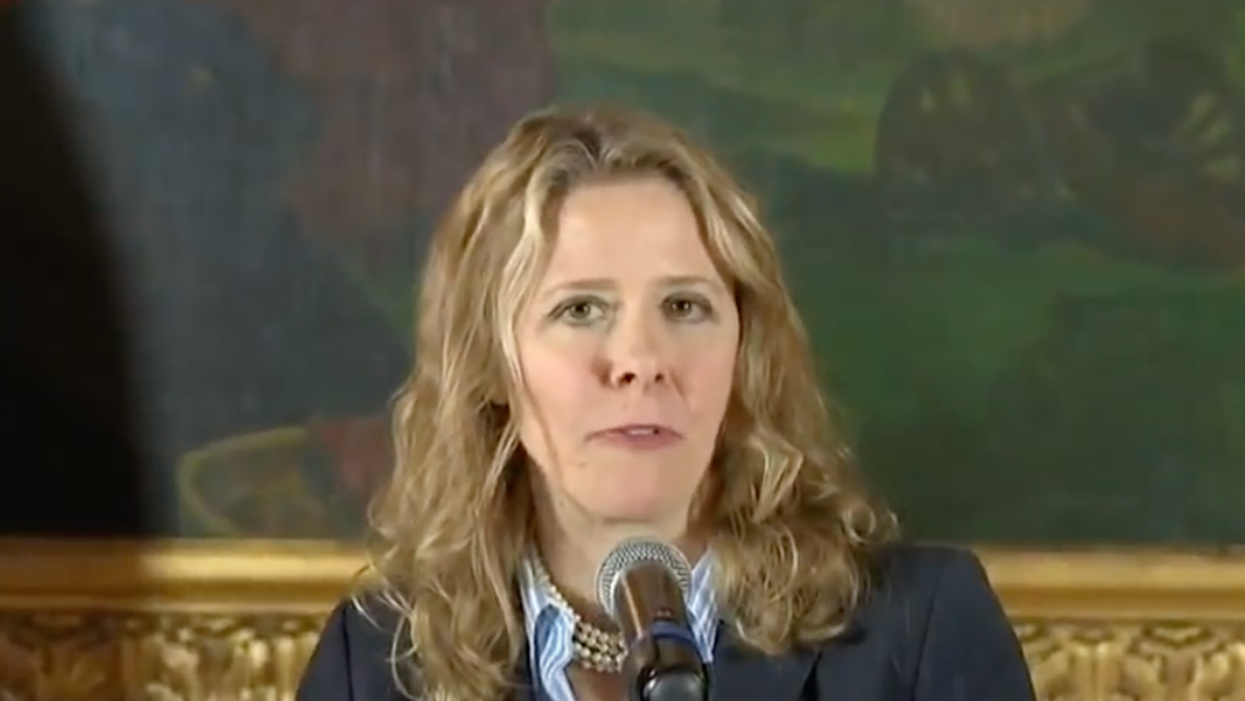Right-wing Wisconsin Supreme Court judge’s edits to Wikipedia page may be 'conflict of interest': watchdog

Wisconsin Supreme Court Justice Rebecca Bradley, Image via screengrab/TMJ4 News.
August 14, 2023 | 10:45PM ETBank
Wisconsin Supreme Court Justice Rebecca Bradley recently logged into her personal Wikipedia page and made a few edits, Milwaukee Journal Sentinel watchdog columnist Daniel Bice reports.
According to the report, @arizonasunblock on Twitter last week wrote, "Conservative Wisconsin Supreme Court justice @JudgeBradleyWI is currently engaging in an edit war on her Wikipedia page under an anonymous username that she also uses in her personal email. You cannot make this stuff up."
Bice discovered the Twitter user was correct, with the username "rlgbjd," standing for "Rebecca Lynn Grassl Bradley, J.D."
The columnist writes:
In her email to the Journal Sentinel, Bradley said she had to make these changes because members of the media aren't doing their job.
"Clearly, the media has made no effort to report honestly so public officials have no choice but to correct the record for them,'" Bradley said.
"I hope this clears up the great Wikipedia issue facing our state and allows you to focus on the constitutional crisis created by my colleagues," she concluded, referring to actions taken by the new liberal majority on the court.
POLL: Should Trump be allowed to hold office again?
"Republicans have become the party of book banning, but as always, Rebecca Bradley goes one step further and wants to erase the Internet," Scot Ross, former executive director of the progressive group One Wisconsin Now told the news outlet.
Bice writes:
According to her Wikipedia page, in May 2020, Bradley "compared the state's stay-at-home orders to the internment of Japanese-Americans during World War II," a case known as Korematsu v. the United States.
Here is what Bradley actually said, according to video of the teleconference of the May 5, 2020, oral arguments:
I'll direct your attention to another time in history, the Korematsu decision, where the court said the need for action was great and time was short and that justified, and I'm quoting, "assembling together and placing under guard all those of Japanese ancestry in assembly centers" during World War II.
Could the secretary (of the Wisconsin Department of Health Services), under this broad delegation of legislative power, or legislative-like power, order people out of their homes into centers where they are properly socially distanced in order to combat the pandemic? . . . The point of my question is, what are the limits, constitutional or statutory? There have to be some, don't there, counsel?
Bradley replaced the words from her original oral argument, writing, "Although headlines may sensationalize the invocation of cases such as Korematsu, the point of citing them is not to draw comparisons between the circumstances of people horrifically interned by their government during a war and those of people subjected to isolation orders during a pandemic. We mention cases like Korematsu in order to test the limits of government authority, to remind the state that urging courts to approve the exercise of extraordinary power during times of emergency may lead to extraordinary abuses of its citizens."
According to Bice, the judge made two additional changes, including editing "the description of her majority opinion in the 2021 redistricting case aimed at setting new political boundary lines in the state," and amending "a summary of her 2022 decision outlawing the use of drop boxes to cast absentee ballots in Wisconsin."
The columnist notes Bradley received backlash from a Wikipedia editor who says the judge may have generated a conflict of interest.
Wikipedia informed Bradley, "Editors with a conflict of interest may be unduly influenced by their connection to the topic," noting the website's guidelines, "which suggested users 'avoid editing or creating articles about yourself, your family, friends, colleagues, company, organization, clients, or competitors.'"
Daniel Bice's full column is available at this link.